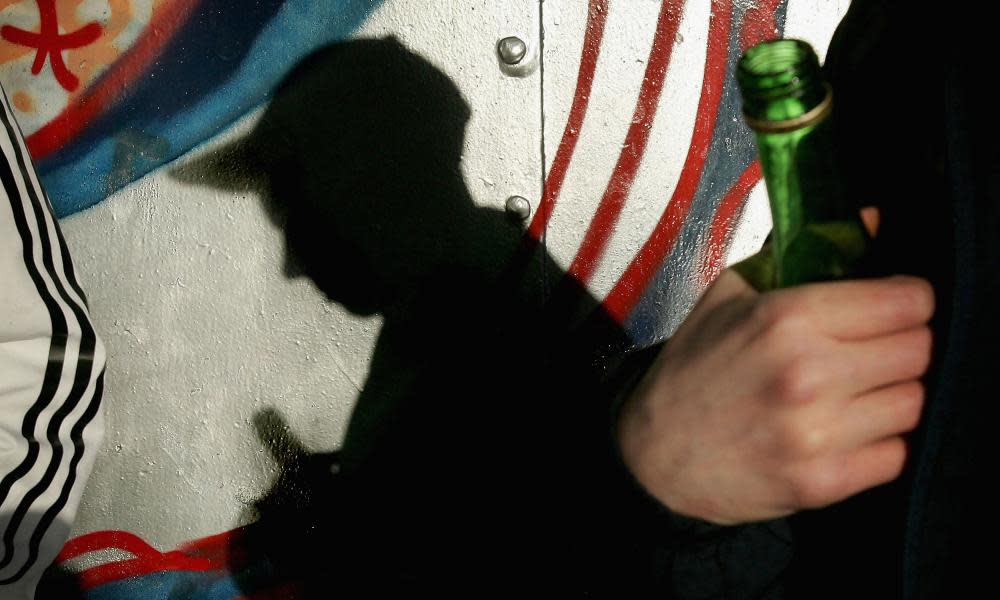UK and Irish teenagers among worst in Europe for problem drinking

Young teenagers in the UK and Ireland are among the worst in Europe for drunkenness, health experts say, although alcohol consumption in the age group has fallen significantly across the continent in recent years.
A World Health Organization (WHO) study found that a greater proportion of 15-year-old girls in the UK and Ireland had been drunk at least twice in their lives than in any other European region, while the boys were behind only their counterparts in central-eastern Europe.
However, the UK and Ireland have also seen the greatest decreases in this area: down 22 percentage points to 28% among girls; and down 25 points to 27% among boys. And the number of 15-year-olds drinking on at least a weekly basis in UK and Ireland was among the lowest in Europe.
The figures, which covered 2002 to 2014, showed a long-term downward trend in alcohol consumption among young teenagers in almost every European region. Nevertheless, the WHO warned that alcohol consumption across the continent remained at dangerously high levels.
Its report, released on Wednesday, found that, in 2014, 8% of adolescents in Europe had been drunk at age 13 or younger and 28% of 15-year-olds said they started drinking aged 13 or younger. While each figure represented a sharp fall since 2002, experts said they were still too high.
And they noted a convergence in the drinking habits of underage boys and girls in the UK and Ireland, with roughly the same proportion of 15-year-olds of each gender drinking on a weekly basis in 2014 – where a significant gap had existed 12 years earlier.
The report’s lead editor, Dr Jo Inchley, said: “Overall reductions in harmful drinking have been greatest in countries that traditionally have had higher prevalence, such as Great Britain and the Nordic region.
“This makes it clear that change is possible; however, more should be done to ensure that adolescents are effectively protected from the harms caused by alcohol.”
Last week, the WHO said its analysis had suggested that alcohol consumption was responsible for more than 5% of all deaths worldwide. And researchers working on the latest report recommended that governments redouble efforts to stop young people getting access to alcohol in order to protect them from its harmful effects in later life.
Dr Zsuzsanna Jakab, the WHO’s regional director for Europe, said: “Young people are regular drinkers at an age where they should not be drinking at all.
“As we know that any alcohol consumption at this critical developmental stage in life is especially harmful, policy makers have a responsibility to implement the measures we know are effective, such as limiting access, enforcing age checks and restricting any type of alcohol marketing, including digital marketing.
“Although the WHO European region has already reached the target of a 10% reduction as set out in the non-communicable disease framework for 2025, much more can be achieved to prevent the devastating impact of alcohol on premature death and disability.”

 Yahoo News
Yahoo News 
